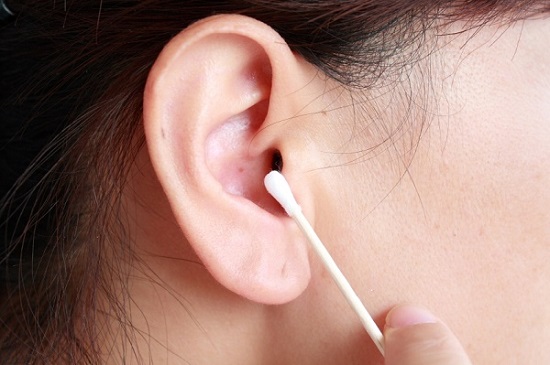
You have most likely never noticed, but on the backside of any package of cotton swabs there’s a warning that is some variation of this:
“Caution: Do not enter the ear canal. Penetrating the ear canal could cause injury.”
If you have a package of cotton swabs, go take a look for yourself.
The truth is, it’s not just physicians, audiologists, and hearing specialists who advise against the use of cotton swabs to clean the ears—even the manufacturers of cotton swabs think it’s a bad idea!
So why, if the use of cotton swabs is such a prevalent method of ear cleaning, should it be refrained from? Why are the manufacturers so adamant that you don’t use their product in this way?
We’re glad you asked: here are four reasons to never use cotton swabs to clean your ears again.
1. Earwax is beneficial
Earwax has a couple of beneficial functions apart from being gross. It has antibacterial properties to prevent infections, it works as an insect repellent to keep bugs out of your ears, and it helps to lubricate the ear canal, which prevents dry, itchy skin.
2. Cotton Swabs push earwax up against the eardrum
Using cotton swabs can actually be dangerous. When you drive any foreign object into the ear canal, you’re moving most of the earwax up against the eardrum. This can rupture the eardrum or can bring on an impaction that will lead to hearing loss.
3. Earwax removes itself
The ear is crafted to remove its own earwax. The natural motions of your jaw—from talking, eating, or yawning—will push the earwax to the external ear. All that’s called for from you is regular showering and cleaning the outer ear with a cloth.
4. Too much earwax removal causes dry skin
Earwax has lubricating and antibacterial qualities, so if you remove too much, you’ll have a dried out, itchy sensation and will be more predisposed to infections.
What you can do instead
There are several commercialized (and do-it-yourself) solutions you can use to flush out your ears, which is far safer than inserting foreign objects into the ear canal. But bear in mind, if you’re having problems with surplus earwax or you’re having trouble hearing, it’s always best to talk to a hearing professional.
Hearing professionals are thoroughly trained in the structure and function of the ear, and can diagnose any ailments you may have with earwax buildup or hearing loss. It’s always a wise decision to rule out more severe problems, and if cleaning is all that’s required, you’ll get the satisfaction of knowing that it’s being done properly.